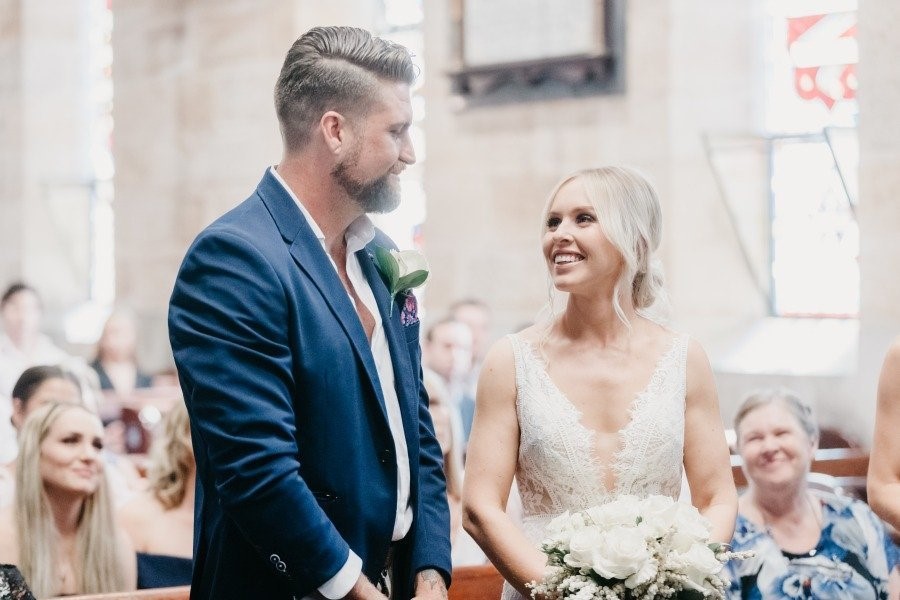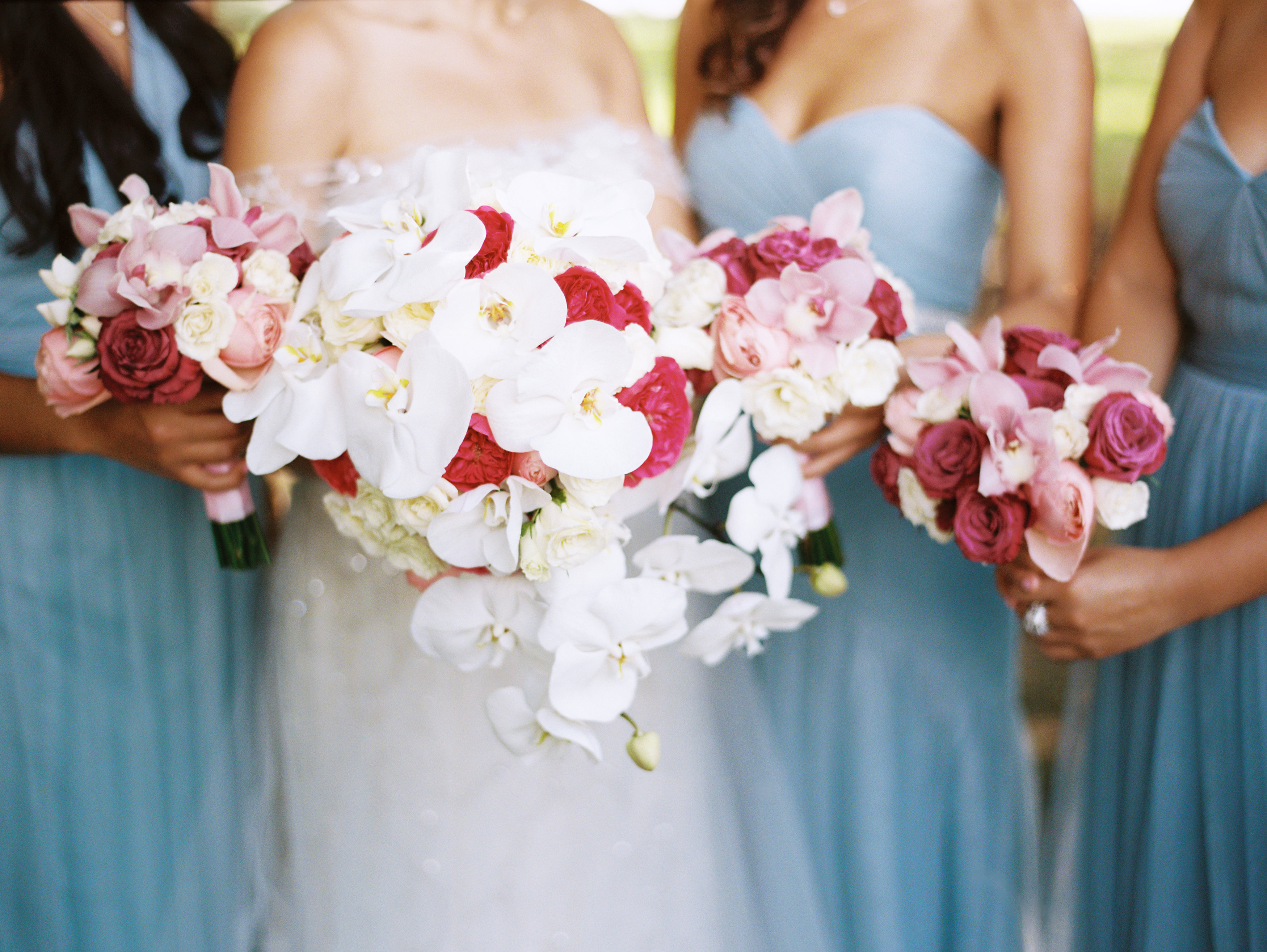
Photo by Cleyder Duque on Pexels
This entry is from our Expert Guest series where wedding and honeymoon professionals share their best tips on creating memories that last alifetime.Across the globe, the trend for a unique wedding day has never been more widely recognized. However, with most of the focus for personalization on the venue, the photographer, the florist, the caterer, the cake, the after-party, and the honeymoon; bizarrely, one often-overlooked aspect is personalizing the wedding ceremony itself. As word spreads, more and more couples who want a religion-free wedding ceremony are now discovering the opportunities available to them with celebrant-led, bespoke humanist wedding ceremony, in which the focus is one hundred percent on the couple.
Each and every humanist wedding script is totally unique; written from scratch to reflect the couple’s stories, personalities, and lives together. There is no copy and paste, no filling in of gaps, no multiple-choice selection of vows and there are no rules regarding content or delivery. Whilst some aspects of a humanist wedding can be traditional, there is much scope for creative flair and without doubt, wedding guests will often experience a range of emotions including surprise, laughter, sincerity, pride, reflection, tears of joy, a deep connection with the couple and altogether, downright delight.

Festival wedding photo by Sawyer and Sawyer Photography
1. It’s all about the couple!
A humanist wedding ceremony is not just about the legal documentation of a marriage. It’s a beautiful and meaningful ceremonial celebration of two people who want to publicly declare their love for one another; and in front of family and friends, make formal promises and commitments to each other that they intend to keep for life. The wedding script is written and delivered by the celebrant, but during the planning stages is led by the couple in terms of style. Scripts are always highly personalized and might include the couple’s love story, their values, and their thoughts on love, marriage and life. Couples can choose to write their own unique vows and the celebrant can include a range of collaborators, rituals, readings, music, and vow styles.
2. Choose your celebrant!
Right from the outset, the couple can choose their humanist celebrant to suit their own style of wedding – whether this is grand, intimate, outdoors, in a tipi, on a boat, in a village hall , or in a historic castle, in a 5-star hotel, barn venue. or a stately home. There will be a few phone calls, some emails and lengthy face-to-face ceremony planning meetings during which ideas are exchanged, advice can be sought, and everyone gets to know each other. The couple get to read, amend, and approve their whole script well in advance, and because they know what’s coming and they know who will be officiating, they can totally relax and enjoy the ceremony.
By choosing a professional, accredited humanist celebrant, couples will also have peace of mind that their officiant has had exceptional training, will be subject to regular peer reviews, will undertake continual professional development, and will be part of a network of experienced humanist celebrants who all deliver a high-quality service.

Dan and Sheila by Sira Studio. Celebrant Rachael Meyer
3. Personal and unique.
Although there will be a proud and nervous walk down the aisle, some emotive words about love and marriage, guest collaboration in the form of words, symbolic act or music, an emotional exchange of vows and rings, a pronouncement and the big ‘you may kiss’ moment, no two ceremonies are the same because no two couples are the same and each story is different. For extra visual and meaningful content, couples can also choose to include any kind of ritual, such as a handfasting, an oath stone or flower ceremony, a unity candle lighting, a sand blending ceremony, or even a sing-a-long!
4. Humanist weddings are inclusive!
Everyone enjoys a humanist ceremony because nobody feels left out. Every single person feels included, regardless of their ethnicity, religion, sexual orientation, marital status, age, or gender. Celebrants write and conduct wedding ceremonies for opposite-sex and same-sex couples with many differing beliefs, backgrounds, and lives. Couples may have no faith or are inter-faith, are multi-cultural, or perhaps they are not religious but their families are.
Because inclusivity, understanding, equality, and the couple are central to a humanist script, love is the unifier amongst guests. Celebrants embrace diversity and although no act of worship may be included in a humanist ceremony, couples may choose to include favorite cultural traditions such as glass smashing, garland or flower exchange, or a quaich (loving cup) ceremony.

Hester and Joe wedding by Duncan McCall Photography
5. It’s not boring!
No-one will be fidgeting or just wanting to get the ceremony over with so they can enjoy the party. The ceremony becomes the beating heart of the wedding day – kickstarting the love in the room with the most incredible attention to detail about the couple and the party atmosphere by adding into a wedding ceremony a lot more fun, meaning, and connection than anyone would expect. Because there are no rules, couples can include children or even their pets in their wedding ceremony! Guests generally leave a humanist wedding ceremony grinning from ear to ear, and absolutely buzzing for the rest of the day!
Help finance your dream wedding with a Honeyfund online wedding registry.
It is important to remember…
The legal recognition of a humanist wedding ceremony differs from country to country but even in countries where the ceremony is not legally recognized (and the legal part takes place usually in a Register Office usually on another day), a humanist wedding ceremony is often one of the biggest highlights of the day, and there are many more pro’s than cons.
Rachael Meyer is a Humanists UK accredited celebrant, based in Harrogate, North Yorkshire, England. At the time of writing, humanist weddings are legally recognized in Scotland, Jersey, Northern Ireland, The Republic of Ireland, the USA, Canada, South Africa and Australia. At present, because weddings are not legally recognized in England or Wales, weddings can be held anywhere because the venue does not need to be licensed for weddings. Each country and state will have its own regulations for marriage ceremonies so please check accordingly.
Bio: Rachael Meyer is a humanist wedding celebrant, accredited by Humanists UK. She writes and delivers bespoke, colorful, and meaningful non-religious wedding ceremonies for couples in Yorkshire, England, and often travels further afield. She brings to her celebrant work years of experience as a commercial photographer, video producer, copy and scriptwriter, and events manager. She is lucky enough to have traveled some of the world, but is still curious.













I think this is the best web post that i have seen a great photos.
Thanks for such a lovely post.
This article is really amazing. Thanks for sharing such a post.